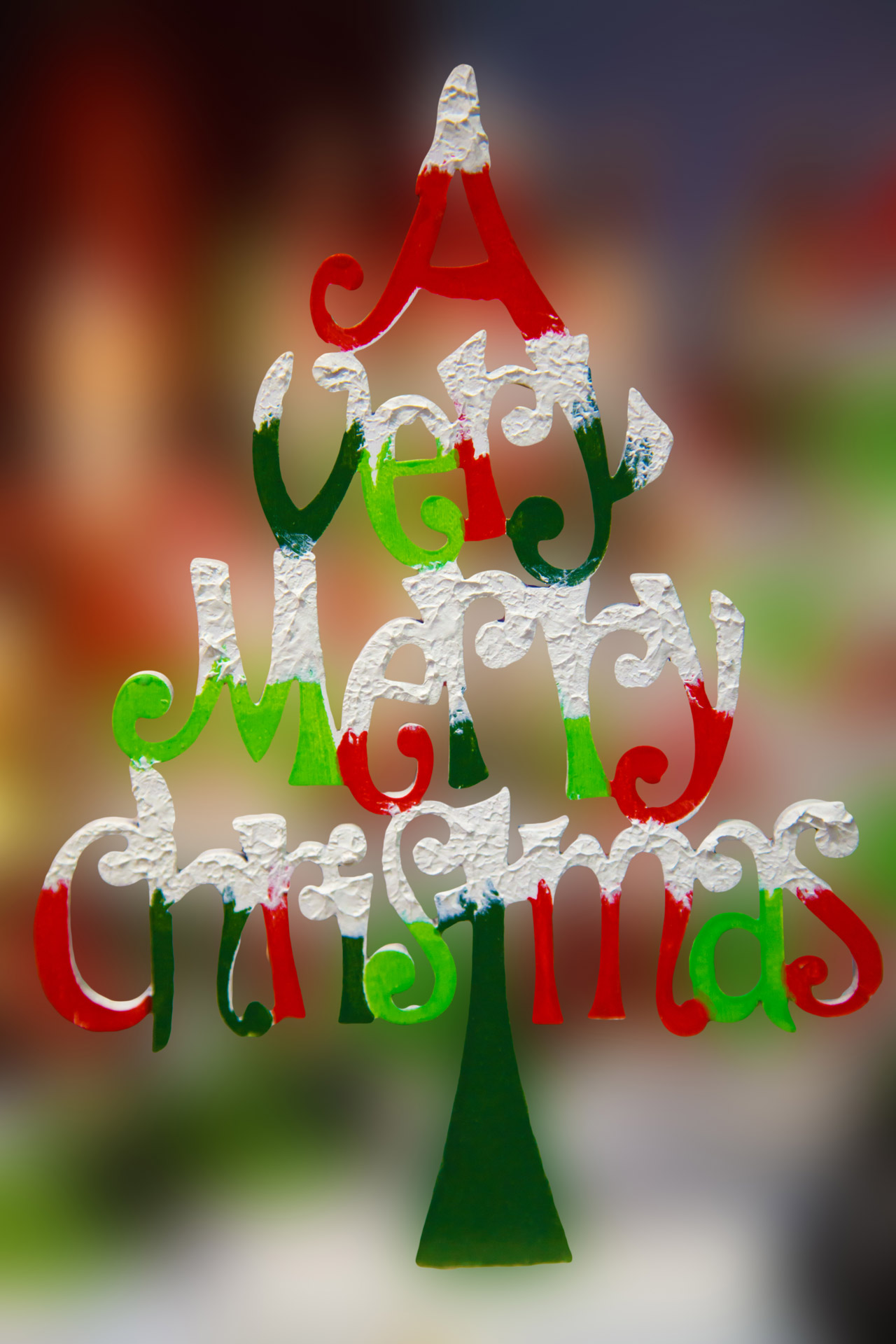It's a common wish, isn't it? As the holiday season rolls around, many of us want to share good cheer with everyone we meet. You might find yourself wondering, "How do I say 'merry Christmas' in Jewish language?" This question comes from a kind and generous spirit, hoping to connect with friends and neighbors who observe different traditions. But here's the thing: Jewish people do not celebrate Christmas, so there isn't a direct translation for "Merry Christmas" into Hebrew or Yiddish. Understanding this difference is the first step towards truly thoughtful communication.
The spirit behind wanting to say "merry Christmas" is, quite often, about expressing happiness, warmth, and good feelings. You want to convey a sense of joy, to be cheerful and lively, wishing others well during a special time of year. That's a lovely sentiment, and it's something we can absolutely share, just perhaps with different words that honor each person's unique background. So, how do we bridge that gap and offer respectful, heartfelt wishes?
This article will help you understand why "merry Christmas" isn't a phrase used in Jewish contexts and, more importantly, what you *can* say instead. We will explore the meaning of "merry," look at Jewish holidays, and give you some authentic greetings that truly fit the occasion. You will, like your, learn to share good wishes in a way that shows genuine care and respect for Jewish customs and traditions.
Table of Contents
- What "Merry" Really Means
- The Jewish Calendar and Its Special Times
- Greetings for Hanukkah: The Festival of Lights
- Shabbat Greetings: Welcoming the Day of Rest
- Greetings for Other Major Jewish Holidays
- General Good Wishes for Any Time
- The Spirit of Goodwill and Connection
- Frequently Asked Questions
- Wrapping Up Your Good Wishes
What "Merry" Really Means
When you say "merry Christmas," the word "merry" itself carries a lovely feeling. Based on the information you shared, "merry" means being full of gaiety or having high spirits. It's about cheerfulness, liveliness, and good feelings, right? It describes something marked by fun and a lively atmosphere. So, in a way, it’s about being joyous in disposition or spirit. This old fashioned word, you know, often describes a happy, festive mood, perhaps at parties or celebrations, and it can also refer to a person's happy mood or nature. It generally refers to a lively and fun atmosphere, but can also refer to a person's good mood, like someone with a "merry nature."
The desire to convey this kind of joy and good cheer is universal. People want to share happiness, especially during times that feel special. So, the core intention behind "merry Christmas" is really about wishing someone well, hoping they experience joy and good times. The challenge, then, is finding the right words to express that same warmth and good feeling within a different cultural or religious framework. We are, after all, looking to connect respectfully.
The Jewish Calendar and Its Special Times
The Jewish calendar is lunar-solar, meaning its holidays fall on different Gregorian calendar dates each year, though they happen at roughly the same time of year. Jewish holidays are deeply rooted in history, tradition, and religious observance, quite unlike Christmas, which celebrates the birth of Jesus and is a Christian holiday. Jewish people have their own set of cherished festivals and days of remembrance, each with its own unique customs, prayers, and, indeed, its own special greetings. So, there isn't a Jewish equivalent to Christmas, and Jewish people do not celebrate it. This is a very important distinction to keep in mind, as a matter of fact.
Understanding this helps us appreciate why a direct translation of "merry Christmas" just wouldn't make sense. Instead, we can learn about the Jewish holidays and the greetings that are truly meaningful to those who observe them. This shows a deeper level of respect and thoughtfulness, which is, you know, really what matters most when wishing someone well. It's about meeting people where they are, culturally speaking.
Greetings for Hanukkah: The Festival of Lights
Hanukkah is perhaps the most well-known Jewish holiday that occurs around the same time as Christmas, which often leads to the confusion about "merry Christmas" in a Jewish context. However, Hanukkah is not "Jewish Christmas." It's an eight-day celebration commemorating the rededication of the Holy Temple in Jerusalem. It’s a joyous time, full of light, family gatherings, fried foods like latkes and sufganiyot, and the lighting of the menorah. So, while it happens in December, its meaning and traditions are very different.
When you want to wish someone well during Hanukkah, there are a few wonderful phrases you can use. The most common and widely understood greeting is:
- "Happy Hanukkah!" This is simple, clear, and perfectly appropriate.
If you want to use a Hebrew phrase, you could say:
- "Chag Sameach!" (חג שמח) This means "Happy Holiday!" It's a versatile greeting that can be used for many Jewish festivals, and it's quite lovely for Hanukkah. The "ch" sound is like the "ch" in "Bach" or "loch."
- "Hanukkah Sameach!" (חנוכה שמח) This specifically means "Happy Hanukkah!" It's a bit more specific than "Chag Sameach" but equally warm.
These greetings, actually, perfectly capture that "merry" spirit of cheerfulness and good feelings that you're aiming for. They convey warmth and good wishes for the holiday, and they are, really, the right way to go.
Shabbat Greetings: Welcoming the Day of Rest
Shabbat, the Sabbath, is a weekly observance in Judaism, from Friday evening at sundown until Saturday evening at sundown. It's a day of rest, spiritual reflection, family time, and community. It's a truly peaceful and special time, observed every week, not just once a year. So, wishing someone well for Shabbat is a common and very meaningful gesture. You know, it's a way to acknowledge their weekly sacred time.
The most common greeting for Shabbat is:
- "Shabbat Shalom!" (שבת שלום) This means "Sabbath of Peace" or "Peaceful Sabbath." It's a beautiful wish for tranquility and rest. This is, you know, used widely and is always appreciated.
You might also hear or use:
- "Good Shabbos!" This is a Yiddish greeting, very common in Ashkenazi Jewish communities. It's a warm, informal way to wish someone a good Sabbath. It's a bit like saying "Good day" but specifically for Shabbat.
These greetings, in their own way, convey a sense of well-being and positive feelings, reflecting the joyous and peaceful nature of Shabbat. They are, you know, quite different from Christmas greetings, but they carry a similar weight of good wishes.
Greetings for Other Major Jewish Holidays
Beyond Hanukkah and Shabbat, the Jewish calendar is full of significant holidays, each with its own customs and appropriate greetings. Knowing a few of these can really show your thoughtfulness and respect. So, it's a good idea to learn some of them, especially if you have Jewish friends or colleagues. This is, in fact, quite considerate.
Rosh Hashanah: The Jewish New Year
Rosh Hashanah is the Jewish New Year, a time of reflection, prayer, and hope for a sweet year ahead. It usually falls in September or early October. It's a very important holiday, marking the beginning of the High Holy Days. People often gather with family, attend synagogue services, and eat symbolic foods like apples dipped in honey.
Common greetings for Rosh Hashanah include:
- "Shanah Tovah!" (שנה טובה) This means "Good Year!" It's a simple, heartfelt wish for a happy and prosperous new year. This is, you know, the most common greeting.
- "Shanah Tovah U'Metukah!" (שנה טובה ומתוקה) This means "A Good and Sweet Year!" It adds that extra wish for sweetness, reflecting the tradition of eating sweet foods.
- "L'Shanah Tovah Tikatevu V'Tichatemu!" (לשנה טובה תכתבו ותחתמו) This is a longer, more traditional greeting meaning "May you be inscribed and sealed for a good year." It's often shortened to "L'Shanah Tovah." This is, you know, quite a formal and traditional wish.
These greetings, you see, perfectly capture the hope and optimism associated with a new beginning, quite like the "merry" feeling, but with a unique Jewish flavor.
Yom Kippur: The Day of Atonement
Yom Kippur, which follows Rosh Hashanah, is the holiest day of the Jewish year. It's a solemn day of fasting, prayer, and repentance, focused on atonement and spiritual cleansing. It's not a day for "merry" wishes in the traditional sense, but rather for wishes of peace and forgiveness. You know, it's a very serious day.
Appropriate greetings for Yom Kippur are:
- "G'mar Chatimah Tovah!" (גמר חתימה טובה) This means "May you be sealed for a good inscription" (in the Book of Life). It's a wish for a favorable judgment. This is, you know, the most common greeting during this time.
- "Tzom Kal!" (צום קל) This means "Easy Fast!" It's a thoughtful wish for someone who is observing the fast. This is, you know, very practical and kind.
While not "merry," these greetings show deep respect for the spiritual significance of the day, which is, in its own way, a profound form of goodwill.
Passover: The Festival of Freedom
Passover, or Pesach, is a major spring holiday commemorating the liberation of the Israelites from slavery in Egypt. It's a time of family gatherings, special meals called Seders, and the eating of matzah (unleavened bread). It’s a festival of freedom and remembrance, often filled with lively discussion and song. So, it has a celebratory feel, quite honestly.
Common greetings for Passover include:
- "Chag Sameach!" (חג שמח) As mentioned before, this means "Happy Holiday!" It's perfect for Passover.
- "Pesach Sameach!" (פסח שמח) This specifically means "Happy Passover!" It's a direct and warm wish.
- "Chag Pesach Sameach!" (חג פסח שמח) This combines "Holiday" and "Passover" for a fuller greeting.
- "Happy Passover!" This is, of course, a perfectly acceptable English greeting.
These greetings, you know, convey the celebratory and joyous aspects of Passover, reflecting a spirit of happiness and gratitude, which is, actually, quite like the feeling of "merry."
General Good Wishes for Any Time
Sometimes, you might just want to offer a general good wish, perhaps for someone's birthday, a new venture, or simply as a friendly gesture. There are several versatile Hebrew and Yiddish phrases that fit the bill, conveying that same sense of cheerfulness and good feelings that "merry" implies. These are, you know, quite useful for everyday interactions.
Consider these:
- "Mazal Tov!" (מזל טוב) This means "Good Luck" or "Congratulations!" It's used for happy occasions like births, weddings, graduations, or any good news. It's a very common and enthusiastic expression of joy. So, if someone shares good news, this is the perfect thing to say.
- "B'hatzlacha!" (בהצלחה) This means "Good Luck!" or "With Success!" It's a great thing to say to someone starting something new, like a job interview or an exam. It's a wish for positive outcomes.
- "L'Chaim!" (לחיים) This means "To Life!" It's a toast, often said with drinks, expressing a wish for a long and good life. It's very celebratory and full of good cheer. This is, you know, quite a famous phrase.
- "Kol Tuv!" (כל טוב) This means "All the best!" or "All good!" It's a lovely way to end a conversation or wish someone well generally. It's a simple, warm, and inclusive wish.
- "Yasher Koach!" (יישר כח) This means "May your strength be firm!" or "More power to you!" It's a way to thank someone for doing a good deed, giving a speech, or contributing to the community. It's a recognition of their effort and a wish for continued strength. This is, you know, quite an encouraging phrase.
These phrases, quite honestly, offer a wonderful way to express goodwill and positive feelings, reflecting that "merry" spirit of joy and cheer in a culturally appropriate manner. They are, you know, very much about wishing someone well.
The Spirit of Goodwill and Connection
Ultimately, the desire to say "merry Christmas in Jewish language" comes from a place of wanting to connect and show respect. While a direct translation doesn't exist because of differing religious traditions, the spirit of "merry" – that feeling of joy, cheerfulness, and wishing good things – is universal. By using appropriate greetings for Jewish holidays and occasions, you are, you know, showing genuine care and understanding. It's about recognizing and celebrating the diversity of our world, which is, in fact, quite beautiful.
Learning these phrases is more than just memorizing words; it's about embracing cultural sensitivity and building stronger, more respectful relationships. It demonstrates that you value your Jewish friends, neighbors, or colleagues enough to learn about their traditions and speak to them in a way that truly resonates. This kind of effort, you see, is always appreciated and goes a very long way in fostering mutual respect. It's a small gesture, but it can mean a lot, quite honestly.
For more insights into Jewish customs, you can explore resources like My Jewish Learning. Also, you can Learn more about Jewish culture on our site, and link to this page here for further details.
Frequently Asked Questions
What do Jewish people say instead of Merry Christmas?
Jewish people do not celebrate Christmas, so they don't have a direct equivalent. Instead, they use greetings specific to their own holidays. For Hanukkah, which often falls in December, "Happy Hanukkah!" or "Chag Sameach!" (Happy Holiday!) are common. For the weekly Sabbath, it's "Shabbat Shalom!" (Peaceful Sabbath!). During Rosh Hashanah, the Jewish New Year, they say "Shanah Tovah!" (Good Year!). Each holiday has its own traditional greeting, which is, you know, quite specific.
Is there a Jewish equivalent to Christmas?
No, there is no Jewish equivalent to Christmas. Christmas is a Christian holiday celebrating the birth of Jesus. Jewish holidays, such as Hanukkah, Passover, Rosh Hashanah, and Yom Kippur, have entirely different historical and religious origins and meanings. While Hanukkah sometimes happens around the same time as Christmas, it is, in fact, a distinct holiday commemorating a different historical event. So, it's not a Jewish version of Christmas, which is, you know, an important distinction.
How do you wish someone a happy Hanukkah?
To wish someone a happy Hanukkah, you can simply say "Happy Hanukkah!" in English. In Hebrew, you can say "Chag Sameach!" (Happy Holiday!), which is a versatile greeting for many Jewish festivals, or "Hanukkah Sameach!" (Happy Hanukkah!). These greetings are, you know, perfectly appropriate and convey warm wishes for the Festival of Lights. They are, you see, quite easy to remember and use.
Wrapping Up Your Good Wishes
So, while there isn't a "merry Christmas" in Jewish language, the good news is that you now have a collection of thoughtful, respectful, and genuinely warm greetings to share. Whether it's for Hanukkah, Shabbat, Rosh Hashanah, or just a general good wish, these phrases allow you to connect with Jewish friends and acquaintances in a meaningful way. Using these greetings shows that you've taken the time to understand and honor their traditions, which is, you know, a very kind gesture. It's about sharing that "merry" spirit of joy and goodwill, just with the right words for the right moment. So, go ahead and share your good wishes with confidence!



Detail Author:
- Name : Dustin Johnson
- Username : faye46
- Email : schuppe.eldon@hotmail.com
- Birthdate : 1992-10-07
- Address : 728 Imani Street Apt. 357 North Maudfurt, OR 55346-6201
- Phone : 480.916.3626
- Company : Willms-Mohr
- Job : Electro-Mechanical Technician
- Bio : Aut ut ab velit. Ut vero quo et natus. Adipisci non voluptatum excepturi aliquid labore in explicabo molestiae.
Socials
twitter:
- url : https://twitter.com/eryn_torp
- username : eryn_torp
- bio : Qui pariatur quae ea aut neque. Totam et quam nihil inventore. Est sed et expedita vel. Sunt hic sint molestiae cumque.
- followers : 3430
- following : 2279
tiktok:
- url : https://tiktok.com/@eryn_official
- username : eryn_official
- bio : Ullam natus qui impedit eligendi non.
- followers : 1053
- following : 2664
instagram:
- url : https://instagram.com/eryntorp
- username : eryntorp
- bio : Asperiores ad explicabo labore quaerat. Voluptate amet voluptas inventore maxime.
- followers : 5763
- following : 1271
linkedin:
- url : https://linkedin.com/in/etorp
- username : etorp
- bio : Minima in non iste ipsam.
- followers : 1092
- following : 998
facebook:
- url : https://facebook.com/eryn.torp
- username : eryn.torp
- bio : Eligendi beatae qui magnam voluptatem.
- followers : 6092
- following : 1057

